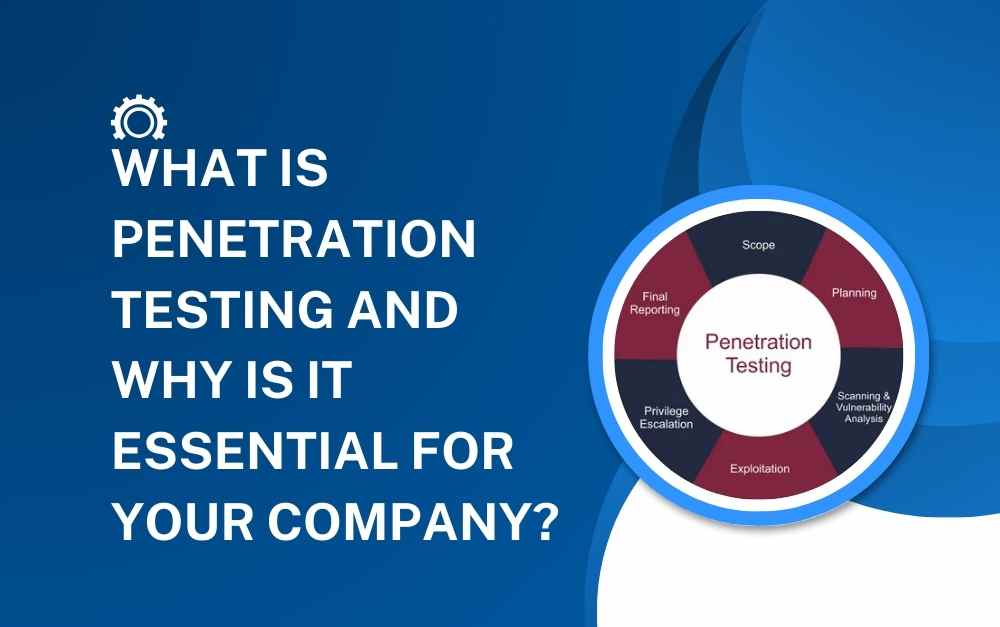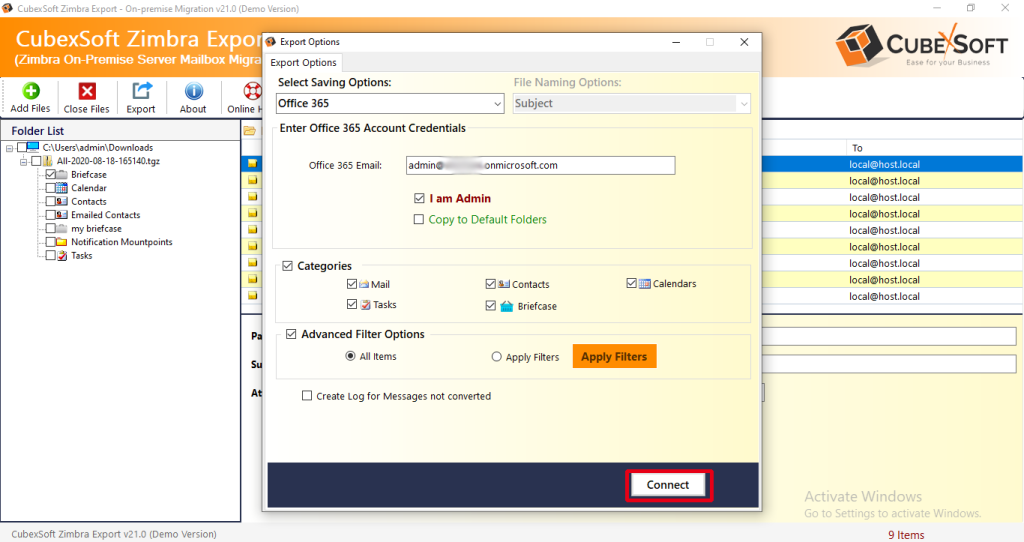Companies encounter a variety of cyberthreats on a regular basis in today’s digital world. It’s critical to recognize and successfully counter these risks in order to protect sensitive data. Penetration testing is useful in this situation. We shall discuss penetration testing and its importance for your business in this blog. We’ll simplify this difficult subject and describe how it can help your company.
Understanding Penetration Testing
What Is Penetration Testing?
Penetration testing, also known as “pen testing,” is a simulated cyberattack on your computer system, network, or web application. The goal is to identify and fix security vulnerabilities before malicious hackers can exploit them. Think of it as a proactive measure to strengthen your defenses.
How Is Penetration Testing Conducted?
Penetration testing is carried out by ethical hackers, also known as “white-hat hackers.” These experts use the same techniques as malicious hackers but with the permission of the company. Here’s a simple breakdown of the steps involved:
- Planning and Scoping: This involves understanding the system to be tested and defining the scope of the test.
- Reconnaissance: In this phase, the tester gathers information about the target system.
- Scanning: The tester uses tools to scan for vulnerabilities in the system.
- Exploitation: This is where the tester attempts to exploit the identified vulnerabilities to gain unauthorized access.
- Reporting: The tester compiles a detailed report of the findings and suggests fixed
ADDITONALLY: Don’t wait until it’s too late. Ensure your company’s security with our expert penetration testing services. Identify vulnerabilities before hackers do. Contact us now for a comprehensive assessment and keep your data safe.
The Importance of Penetration Testing
Identifying Vulnerabilities
Every computer system, network, or web application has potential weaknesses. Penetration testing helps identify these vulnerabilities before they can be exploited by malicious hackers. By finding these weak spots, you can address them promptly and prevent potential breaches.
Protecting Sensitive Information
For many companies, sensitive information is their most valuable asset. This includes customer data, financial records, and intellectual property. A security breach can lead to significant financial losses and damage to your company’s reputation. Penetration testing ensures that your sensitive information is well-protected.
Compliance with Regulations
Many industries have strict regulations regarding data security. For example, healthcare providers must comply with HIPAA, while financial institutions must adhere to PCI DSS standards. Penetration testing helps ensure that your company complies with these regulations, avoiding hefty fines and legal issues.
Enhancing Customer Trust
Customers expect companies to protect their personal information. By conducting regular penetration tests, you demonstrate your commitment to security. This can enhance customer trust and loyalty, as they feel confident that their data is safe with you.
Different Types of Penetration Testing
Network Penetration Testing
Network penetration testing focuses on identifying vulnerabilities within your network infrastructure. This includes firewalls, routers, and switches. By securing your network, you prevent unauthorized access and potential data breaches.
Web Application Penetration Testing
Web applications are common targets for cyberattacks. Web application penetration testing involves testing the security of your web applications to identify and fix vulnerabilities. This helps prevent attacks such as SQL injection and cross-site scripting.
Wireless Penetration Testing
Wireless networks are often less secure than wired networks. Wireless penetration testing evaluates the security of your wireless networks, ensuring that they are not vulnerable to unauthorized access.
Social Engineering Testing
Human error is a significant factor in many security breaches. Social engineering testing involves simulating attacks that trick employees into revealing sensitive information. This helps identify weaknesses in your security awareness programs and improves employee training.
The Process of Penetration Testing
Planning and Scoping
The first step in penetration testing is planning and scoping. This involves defining the objectives, scope, and limitations of the test. It’s crucial to have a clear understanding of what is being tested and the goals of the test.
Information Gathering
Next, the tester gathers information about the target system. This can include IP addresses, domain names, and network infrastructure details. The goal is to understand the target system and identify potential entry points.
Vulnerability Analysis
The tester then analyzes the target system to identify vulnerabilities. This involves using automated tools and manual techniques to scan for weaknesses. Common vulnerabilities include outdated software, weak passwords, and misconfigured systems.
Exploitation
Once vulnerabilities are identified, the tester attempts to exploit them. This is done to understand the impact of a potential attack. The tester may try to gain unauthorized access, extract data, or escalate privileges.
Reporting
The final step is reporting. The tester compiles a detailed report of the findings, including the vulnerabilities identified, the methods used to exploit them, and recommendations for remediation. This report is crucial for improving your security posture.
Benefits of Penetration Testing
Proactive Security Measures
Penetration testing allows you to identify and fix vulnerabilities before they are exploited by malicious hackers. This proactive approach enhances your overall security posture and reduces the risk of a security breach.
Cost Savings
Addressing vulnerabilities before they are exploited can save your company significant amounts of money. The cost of a data breach, including fines, legal fees, and reputational damage, can be much higher than the cost of regular penetration testing.
Improved Incident Response
By understanding the vulnerabilities in your system, you can improve your incident response plan. This ensures that your team is prepared to respond quickly and effectively to a security breach, minimizing damage and downtime.
Competitive Advantage
In today’s competitive business environment, security can be a differentiator. Companies that prioritize security and demonstrate their commitment through regular penetration testing can gain a competitive advantage. Customers and partners are more likely to trust a company that takes security seriously.
Conclusion
Penetration testing is an essential component of any comprehensive security strategy. It helps identify and fix vulnerabilities before they can be exploited by malicious hackers, protecting your sensitive information and ensuring compliance with regulations. By conducting regular penetration tests, you can enhance customer trust, save costs, and improve your overall security posture.
In today’s digital age, cybersecurity is more critical than ever. Don’t wait for a breach to occur. Take proactive steps to secure your company’s assets and safeguard your reputation. Penetration testing is a vital tool in this effort, providing valuable insights and helping you stay one step ahead of cyber threats.
For more insightful articles related to this topic, feel free to visit theguestposts




